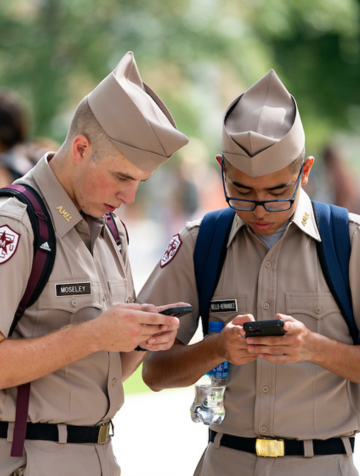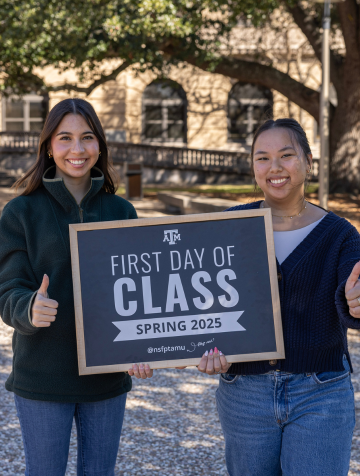
People always talk about the wonderful and lifelong friendships they made in college. Roommates become bridesmaids, lab partners turn into godfathers; but how do those relationships happen? During those first few weeks of college, it can be hard to imagine how connections with classmates might evolve. Some may become lifelong friends, while others dissolve into weekly semester acquaintances. It leaves you to wonder, “Will I ever find my people?”
First Connections
Attending college can be overwhelming. In addition to figuring out how to navigate your classes, finding friends may seem daunting. It’s almost like your first day of Kindergarten: Everything and everyone is new. As scary as it may sound, putting yourself out there and pushing past your comfort zone is a key aspect in meeting new people.
You might meet potential friends in your classes or major, or where you work. One of the most popular ways to meet new people with similar interests is by joining a student organization. With over 1,300 organizations on campus, there is something for everyone. The Student Activities webpage has a search-by-category option, which is useful when looking for something specific. Some organizations are competitive, some are philanthropic, and others are purely social; it all depends on what you are looking for.
Whether it be an academic/professional group or a social men/women’s organization, Texas A&M University has an endless list of things to join that will help get you involved. Just remember: Be yourself, and don’t be afraid to go up to new people.
Degrees of Friendship
Not everyone you meet is meant to be your best friend. There are different types of friendships, especially in college, and each one is important in its own way.
- Educational: These friends are there to provide informational and professional assistance. Think of people who would be your study buddies or you would look to for information (either about jobs, registration, or advice about school and careers).
- Social: This is a person who you would have a good conversation with, and someone you want to hang out with. Maybe you text these friends when you need a coffee or a friend to go with you to an organization informational. These are people who would attend a football game with you.
- Emotional: These friends are your shoulder to cry on; someone you can vent to and get more personal advice from. They are there for your highs and lows, and you can count on them for support.
Friends can be all three! However, it’s also okay to recognize that everyone has a different role in your life, and there is no specific mold for friendships.
Navigating the Ups and Downs
Every good friendship has setbacks, but how you respond to them defines its future. The key is communication. Whether you’re feeling left out, someone said something that rubbed you the wrong way, or you simply need time to yourself, conversations about feelings are essential. If a conflict arises, take a step back to cool off. Usually, initial feelings simmer down after stepping away from the issue. When it comes time to have that conversation, have an open mind. Listen to what the other person is saying and try to understand where they’re coming from. Lastly, find a compromise. It’s not about who’s right or wrong but figuring out a way to correct the behavior and move forward.
So, as you dive into this new chapter, remember friendships are like Rome - they aren’t built in a day. Don’t stress if you haven’t found your crew right away. Keep putting yourself out there, join those clubs, and be open to new experiences. Before you know it, you’ll have a mix of friends who support you in different ways, from study buddies to game day pals. Embrace the journey, and enjoy every moment of it. College is a wild ride, and the friendships you make along the way will be some of the best parts. You’ve got this!










